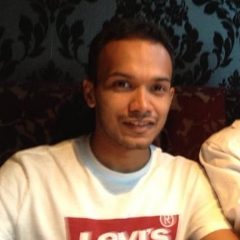Explained | Greta Thunberg, Disha Ravi and the Toolkit fiasco

Mail This Article
On February 3, when Swedish climate activist Greta Thunberg tweeted solidarity with the farmers protesting India's controversial farm laws, little did she know that three activists in India would find themselves in deep waters because of her tweet.
Her tweet gave away a link to a document – a toolkit – that highlighted ways to amplify the on-ground farmers' protests in India by way of digital means.
According to Delhi Police, this toolkit played a major role in turning the Republic Day tractor parade violent, leaving several people injured.
Investigations into the document showed Disha Ravi, a 22-year-old Bangalore activist, as its "Editor".
Subsequently, Disha and two others – lawyer Nikita Jacob and engineer Shantanu Muluk – were booked under IPC Section 124 (A) for sedition, Section 153 (A) for promoting enmity between different sections of the society and Section 120 (B) for criminal conspiracy.

What is a toolkit?
A toolkit is a document that helps the layman understand a complex topic, see the underlying problem and enable him or her to voice their concerns or support the cause.
However, in this digital era, when political narratives are born and fuelled by what is trending on social media, toolkits have donned a new role – that of a loudspeaker in a rally. They have been instrumental in ramping up the Occupy Wall Street protests of 2011, the Hong Kong protests of 2019, and in organizing the country-wide protest against another of the India government's controversial law – the Citizenship Amendment Act.
Thunberg tweeting it is then no surprise. In fact, toolkits likely played a decisive role in fanning many climate protests instigated by her around the world. Their effective use also contributed to the success of such protests.
India government too has issued a toolkit via their Department for Promotion of Industry and Internal Trade. It lists guidelines to follow when investigating Intellectual Property Rights violations, applicable laws, and definitions of terms such as counterfeit and piracy.

So what's so different in the toolkit that Thunberg's tweeted? Nothing. You will see all the details in it that you'd expect from any toolkit – steps on how to amplify the protest on Twitter (this is also called Twitter Storm), useful links that lead to more discussions, a donation site, data pool and a repository of photos and videos.
Basically, it's everything that you'd need to, as the document label says, "better understand the situation and make decisions on how to support the farmers based on their own analysis."
However, there's one line in it that urges all to protest “near Indian Embassies, Government offices, Media houses (or even Adani-Ambani offices globally) on January 26. It's this line that the police have allegedly misconstrued to conclude that the Republic Day violence was premeditated and part of a larger conspiracy.
Delhi Police also claimed that the toolkit was not created by a handful of activists in India, but in collaboration with pro-Khalistani organizations.

Pro-Khalistani link explained: One of the links in the toolkit led to a website run by Poetic Justice Foundation (PFJ), an organisation working to create awareness and dialogue on human rights and social rights issues.
Its co-founder MO Dhaliwal had posted "I'm Khalistani" on September 17, 2019. The police had to 'exhume' this post to explain this pro-Khalistani link. Dhaliwal had recently defended the post saying that "he has no Khalistani agenda".
The Khalistan movement was a separatist campaign primarily backed by Pakistan to foment terrorism in Punjab during the 1980s.
There's also likely another reason why the police went to such lengths. Just days before Thunberg's tweet, R&B idol Rihanna had, to her 102 million followers, tweeted "why aren't we talking about this?! #FarmersProtest" in support of the farmers' protest in India.
The Indian government was likely wary of growing international support for the protest and wanted to quell that as it was starting to take off. It had since enlisted India's own brigade of sports and film titans to overturn the narrative.
On February 16, Shantanu Muluk was granted pre-arrest bail for 10 days by the Aurangabad bench of the Bombay High Court. A day later, the Bombay High Court granted pre-arrest bail to lawyer Nikita Jacob – another suspect in connection with the toolkit. The Delhi court granted Disha bail on February 23.
Even amid all this clamour, the protest against the farm laws continues. The arrest of these three activists has only added more fuel to the fire.


